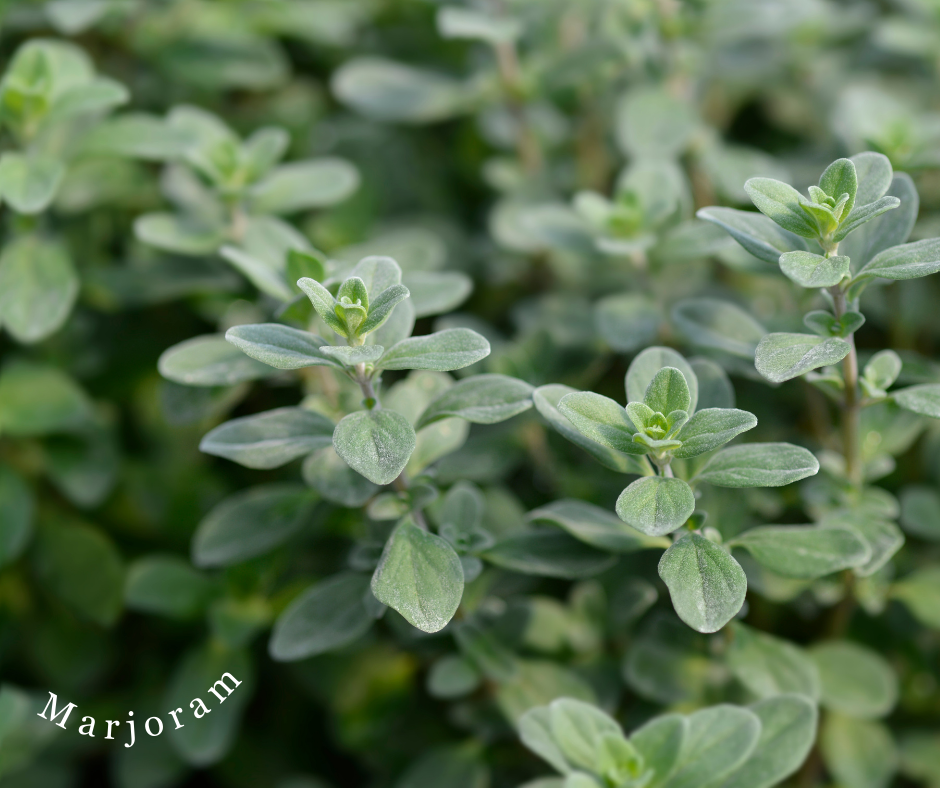
Marjoram at the Shakespeare Garden
Origanum vulgare
Marjoram is an ancient herb used by both the Greeks and the Romans and is mentioned in a Roman cookbook as one of the 10 most popular culinary herbs.
Marjoram is decorative and is included in bouquets in The Winter’s Tale. In King Lear, Shakespeare features it as a password. In other instances, this spice is a happiness herb, or if found on a grave, it tells of the spirit moving on peace.
This savory herb is also a remedy for narcotic poisons and brain diseases, as well as many other medicinal uses. As one of the strewning herbs, it served “as an antidote to the stench of sixteenth century hygiene.” In the middle ages it would be carried at weddings representing love and honor. To this day, it is dried and used for tea in cottages in Kent.
Marjoram is often confused with oregano, as both are members of the mint family. It can be grown as a perennial herb that spreads easily by roots, growing 12-24 inches. However, it is not winter-hardy and is considered an annual in cooler climates. It thrives in pots or in ground, loving drier soil and full sun.
Shakespeare references to marjoram:
-
Lavatch/Clown:
“Indeed, sir, she was the
Sweet marjoram of the
Salad, or rather the Herb-of-grace.”
-
Lear:
“Give the word.”
Edgar:
"Sweet marjoram."
Lear:
"Pass."


